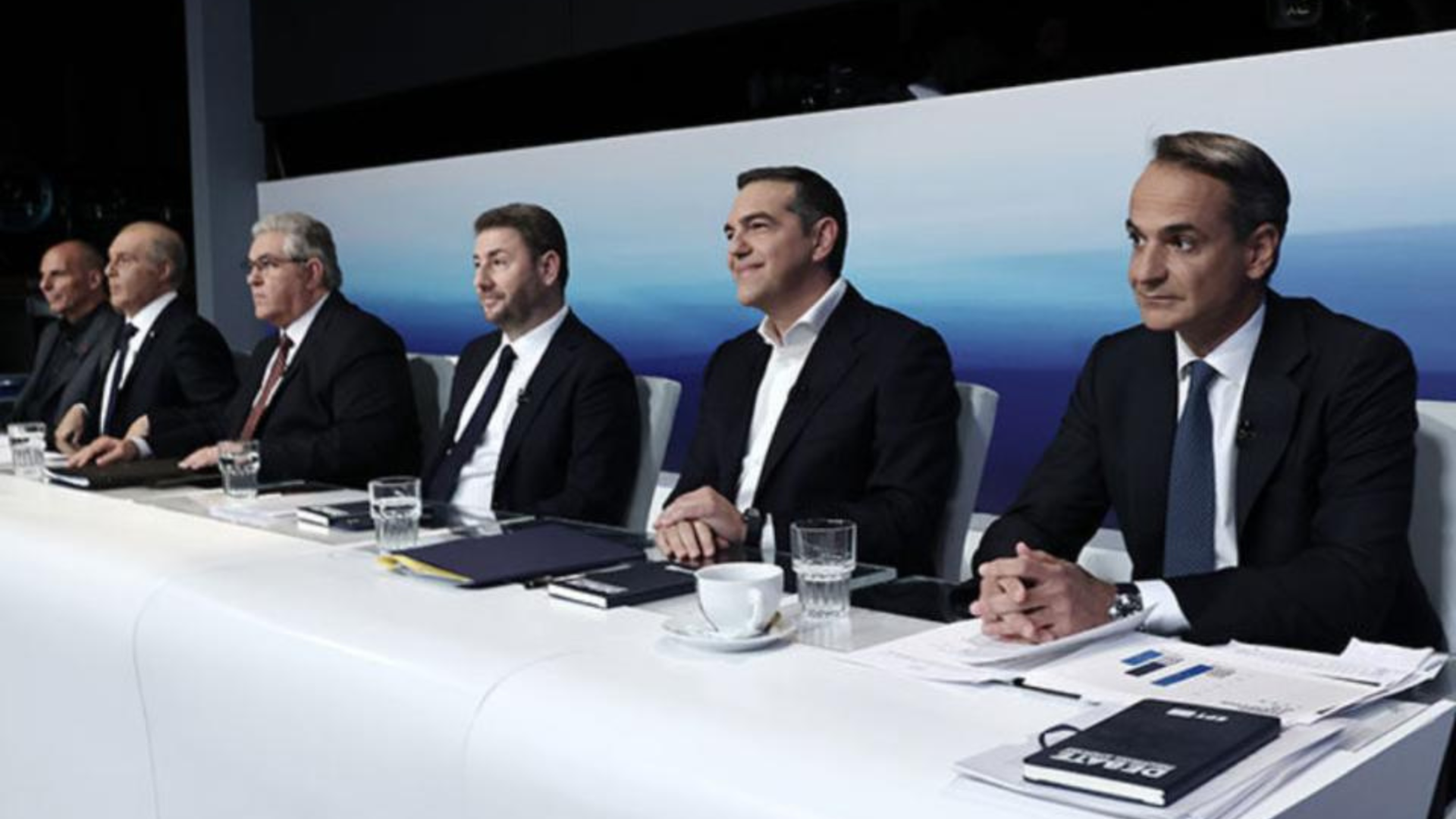Greece’s political party leaders held their first debate on Wednesday ahead of the upcoming state elections on May 21. During the debate, the leaders discussed the country’s economy, as well as foreign and defence policies.
Ekathimerini reported on all the party leaders arguments and propositions. Here are the top points from each leader:
Economy:
Greece’s Prime Minister, Kyriakos Mitsotakis, expressed that if food prices don’t match inflation he is prepared to extend the “market pass” policy into the second half of 2023.
Mitsotakis shot down opposition proposals to lower VAT on a range of goods and services, saying such measures have not proven effective and have only resulted in lost revenue.
Opposition leader, Alexis Tsipras, promised tax cuts and higher wages, particularly for National Health System doctors and promised to go after funds that have bought non-performing loans from banks and attempt to repossess and sell off debtors’ properties.
Socialist leader, Nikos Androulakis, said he would create more inclusive debt payment rescheduling schemes which would not help the rich. While Communist Party general secretary, Dimitris Koutsoubas, criticised all party’s serving Greece’s creditors and not the people.
Kyriakos Velopoulos, leader of hard-right populist Greek Solution, said generating 75 percent of the country’s income from services is unsustainable and would favour other sources of income such as agriculture.
MeRa25 leader, Yanis Varoufakis, said that hearing Mitsotakis and Tsipras left him with the sense of deja vu, listening to a pre-financial crisis rhetoric about a strong economy and proposed a parallel electronic payments system.
Foreign and security policy:
Tsipras said he would honour the defence procurement agreements signed by the Mitsotakis government, but would involve Greece’s armaments industry more in production. He also added Greece’s need for more border control.
Androulakis also focused on Greek borders being European borders and that a European army is needed to guard them. Effectively dealing with Turkey would mean abolishing the veto on EU foreign policy and security decisions.
Koutsoubas said NATO membership only involves Greece on NATO’s wars of aggression, such as the “NATO-Russia war” and does not serve Greece’s interests.
Velopoulos said Greece’s pro-western stance did not shield it from foreign policy calamities. He said he would rearm the country’s islands and “change” the Prespes agreement with North Macedonia.
Varoufakis said that it is every government’s duty to defend national territory. He said his priority would be to call for a regional conference to resolve Greece’s disputes with Turkey over maritime jurisdiction.
Mitsotakis said his defence procurement program was necessary to strengthen the armed forces and fill gaps in funding caused by the financial crisis.
He added that his government had to deal with a very aggressive Turkey and that it aggressively built alliances and that Greece now gets a friendlier hearing in the US Congress than Turkey.
Source: Ekathimerini

